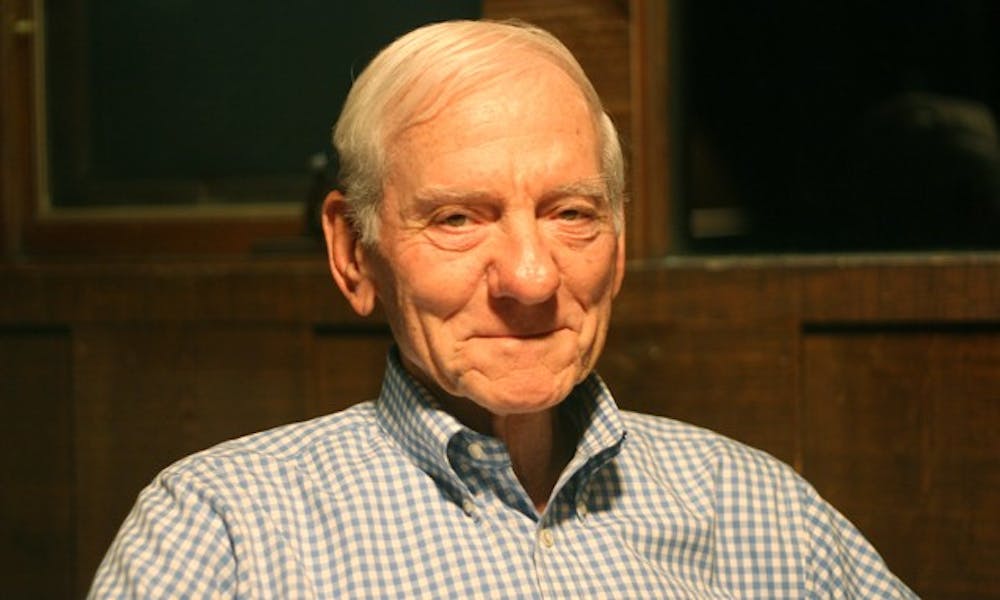The Triangle, one of the fastest growing Jewish communities in the country, is about to get its first Jewish Community Center.
The Charlotte and Dick Levin Jewish Community Center will fill a much-needed void in the area, where there is demand for communal space to serve the region’s Jewish population, as well as a desire for sufficient office and programming space for the Durham-Chapel Hill Jewish Federation. Professor George Gopen, senior lecturing fellow in English and the School of Law, said he can see the attraction of a JCC in the Triangle.
“A synagogue tends to be more focused on religion and ethical concerns,” he said. “A JCC can bring Jews together who do not see themselves as observantly religious but who still want to interact with other Jewish people. And it’d be nice for Jewish people to have a place like that here.”
Sophomore Benny Maimon, the Rubenstein-Silvers Hillel religious vice president for reform, also thinks that the center will be beneficial to the community.
“It would centralize the Jewish community and form it into a more cohesive group,” Maimon said. “It will also form bonds between people that wouldn’t have been formed otherwise.”
Dick Levin, the largest donor for the new center, taught at the Kenan-Flagler Business School at the University of North Carolina at Chapel Hill for 35 years before retiring in 1993. He decided to name the JCC in honor of his late wife who passed away from lung cancer in 2005.
“She would have loved this,” he said. “She was very involved in the community, even more so than I was. She would have been very excited.”
Community members gathered to break ground on the $7 million JCC Oct. 18. Construction will begin within the next few weeks, once the project’s finances are settled. The center will be located on West Cornwallis Road in Durham, just opposite the Washington Duke Inn and Golf Course and only a couple miles from the heart of West Campus. The center is tentatively set to open in early 2011.
Rabbi Michael Goldman of Jewish Life at Duke wrote in an e-mail that 50 years ago, American Jews were mostly immigrants. When they came to the United States, they lost the sense of community that they had felt in their villages in Eastern Europe.
In addition, many country clubs and other institutions prohibited Jews from joining their respective organizations. As a result, Jewish Community Centers were formed as places where Jews could interact with their community without discrimination.
“It’s worth noting that JCCs, almost by definition, are secular institutions,” Goldman said. “They’re not connected to any particular stream of religious Judaism, and are intended as a place where people of different stripes—some religious, others, not—can mingle.”
The project is the result of a partnership between the Federation and the Sandra E. Lerner Jewish Community Day School in Durham. The two groups created the Partnership for a Jewish Center to oversee the project, and the Jewish Federation will take over the center once it is completed. The new JCC will be constructed next to the Lerner School and the Judea Reform Synagogue, creating a unique campus for Jewish life.
The new building will include a gymnasium, an outdoor pool, offices, gallery space for exhibits, conference rooms, a kitchen, a health and fitness center, teen and senior lounges and arts and crafts rooms.
Three years of fundraising has produced $7.25 million from 540 donors. The Partnership needs to raise another $250,000 in order to complete their fundraising campaign. Including the addition of a preschool wing to the Lerner School, which has already been completed, the cost of the entire project is between $9 and $10 million.
Partnership co-Chair Bryna Rapp said membership to all JCCs across the country has always been open to everyone, Jewish and non-Jewish. Centers in the Southeast typically have between 20 and 40 percent non-Jewish members, she said.
No specific plans have been made for any kind of a partnership between Jewish Life at Duke and the new Levin JCC, but many at Duke are excited about the opportunities that the new center will bring.
Rebecca Simons, director for Jewish Life at Duke, wrote in an e-mail that the Freeman Center will continue to be the primary religious institution in students’ lives but that she anticipates working together with the center.
“The Freeman Center for Jewish Life will remain a home away from home for all Duke students and will continue to provide innovative and engaging programs and services on campus,” she said. “Jewish Life at Duke is always looking to partner and co-sponsor programs and initiatives that are mutually beneficial and of interest to those involved. We look forward to working with the new JCC.”
Get The Chronicle straight to your inbox
Sign up for our weekly newsletter. Cancel at any time.

